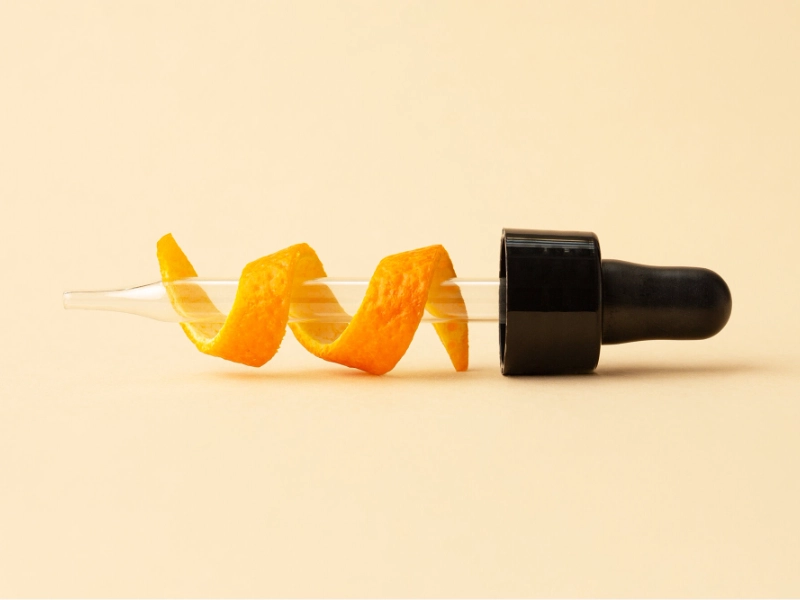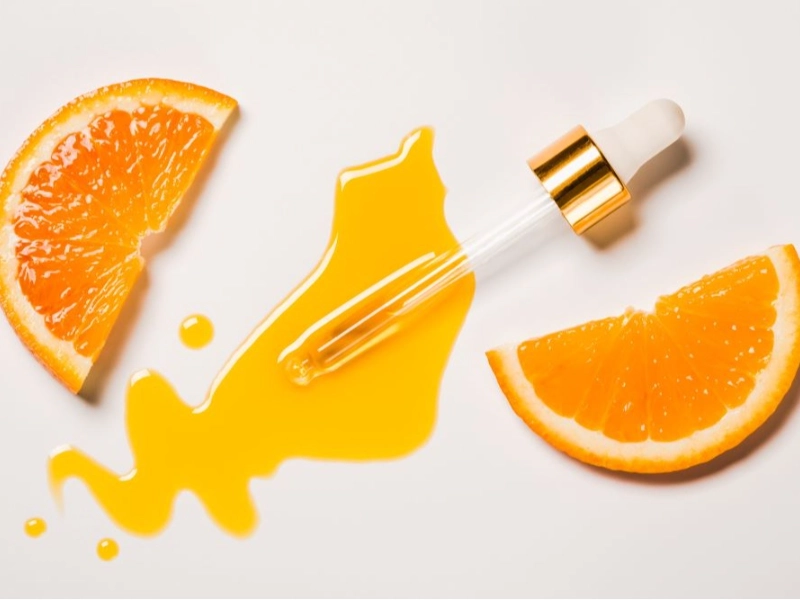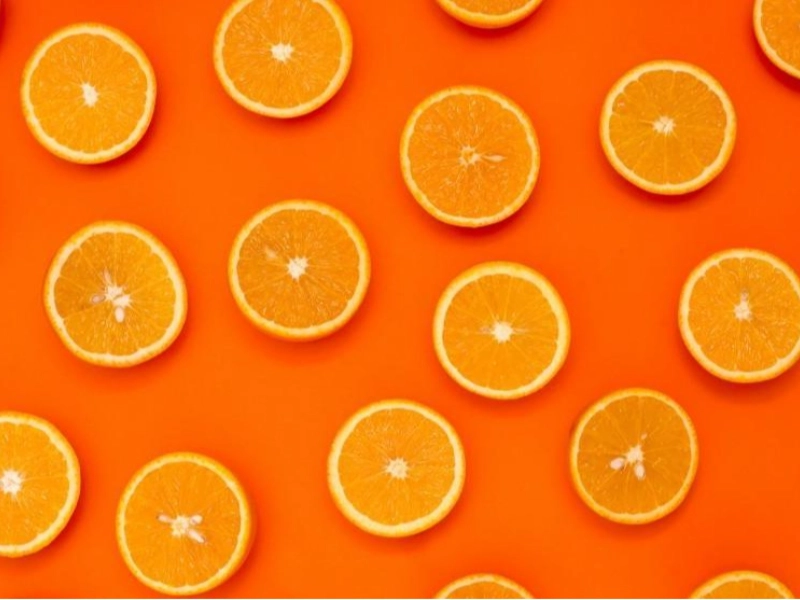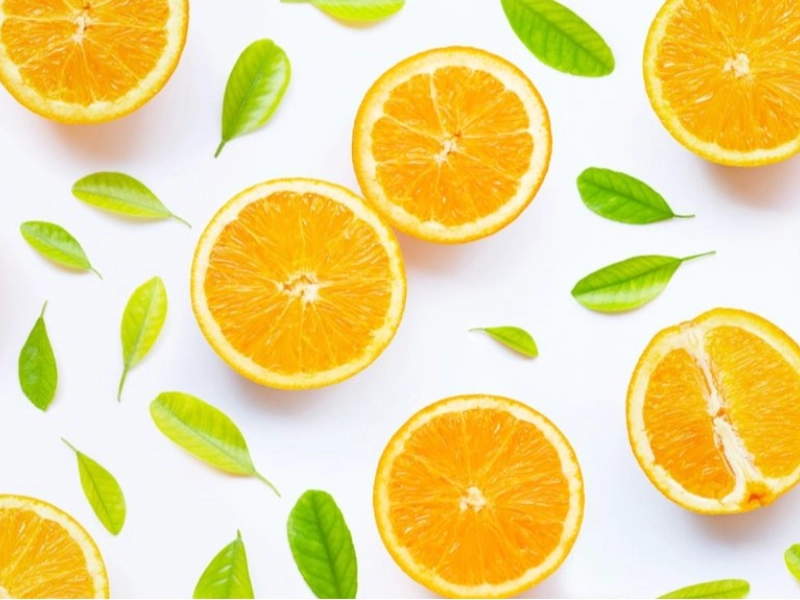Advertisement

Advertisement
1. Vitamin C's Place in the Body Essential for several functions in the body, vitamin C—also known as ascorbic acid—plays It is vital for the development and healing of tissues, the synthesis of collagen, and immune system operation. Because of its antioxidant qualities, which assist athletes fight oxidative stress brought on by vigorous exercise, vitamin C is especially crucial. The body does not create this vitamin, hence it is absolutely important to get it from diet or supplements.
2. Exercise's Antioxidant Effects Particularly in demanding or extended activity, the body generates free radicals. These unstable chemicals can damage cells oxidatively, which would result in tiredness and poor performance. Strong antioxidants, vitamin C neutralises free radicals and lowers oxidative stress. Athletes who reduce this damage could have reduced muscular discomfort and faster recovery times, thereby allowing them to keep a regular training schedule.

3. Supporting Immune System Activity Because intense training momentarily weakens the immune system, athletes are more vulnerable to infections and diseases. Well-known for its immune-boosting qualities, vitamin C helps to strengthen the body's defences. Regular vitamin C intake helps athletes remain healthy, therefore lowering their chance of disease that can impede their performance or training. Athletes who must regularly practice and perform at high levels depend on a strong immune system.
4. Joint health and production of collagen Collagen, a protein vital for the integrity of connective tissues like tendons, ligaments, and cartilage, is synthesised from vitamin C in great part. Maintaining joint health is absolutely important for sportsmen to avoid injuries and guarantee best performance. Enough vitamin C helps these tissues be repaired and maintained, therefore enhancing general joint stability and flexibility. Athletes involved in high-impact sports or activities that strain the joints especially should pay close attention to this.
5. Improving Iron absorption Maintaining appropriate iron levels is vital for athletes since iron is needed for blood's oxygen movement. When taken in tandem, vitamin C improves the absorption of non-heme iron—the kind found in plant-based diets. Athletes on vegetarian or vegan diets especially benefit from this since they can have trouble getting their iron levels met. Athletes can raise their iron level by include foods high in vitamin C-rich foods with iron sources, therefore supporting endurance and energy levels both during training and competition.

6. Vitamin C's sources There are several foods athletes can get vitamin C from. Although citrus fruits—such as oranges and grapefruits—are well-known sources—other fruits and vegetables also abound in this vitamin. Excellent selections are bell peppers, strawberries, kiwi, broccoli, and Brussels sprouts. Including several of these foods in the diet can help guarantee enough consumption of vitamin C. Supplements are available for those who find it difficult to meet their demands with diet alone; nonetheless, it is advisable to see a healthcare professional before beginning any kind of supplement.
7. Daily Intake Suggested Age, sex, and life stage all affect the advised daily dose of vitamin C. With an upper limit of 2,000 milligrammes, the advised dietary allowance (RDA) for most persons is between 65 and 90 milligrammes daily. Athletes could gain from larger intakes especially during periods of intense training or competition since of their higher physical demands. Still, it's crucial to balance vitamin C intake with other nutrients and steer clear of too strong supplements, which could cause stomach problems.
8. Vitamin C Intake Timing Furthermore affecting vitamin C's efficacy for athletes is the timing of consumption. Eating meals or supplements high in vitamin C near training sessions can help with recuperation and lower oxidative stress. Including vitamin C in meals following a workout helps restore nutrients and aid in muscle regeneration. Still, it's important to pay more attention to general dietary patterns than depending just on supplements since complete foods offer other advantages beyond just vitamin C.

9. Prospective Issues and Thoughtfulness Although vitamin C is usually safe and well-tolerated, too much of any one vitamin can cause side effects like stomach cramps and diarrhoea. Athletes should strive to achieve their vitamin C requirements from a balanced diet high in fruits and vegetables. Before making major adjustments to their vitamin C intake, people with some medical issues or those using particular drugs should also see a healthcare professional.
10. Synopsis of Vitamin C Advantues for Sportsmen Essential for athletes, vitamin C provides many advantages that improve performance and recovery. Its antioxidant qualities strengthen immune system function, assist to battle oxidative stress, increase collagen synthesis, and enhance iron absorption. Athletes can maximise their health, performance, and recovery by including foods high in vitamin C into their diets and keeping appropriate intake. Knowing the value of this vitamin helps athletes make wise food decisions that complement their general health and sports objectives.

 3. Supporting Immune System Activity Because intense training momentarily weakens the immune system, athletes are more vulnerable to infections and diseases. Well-known for its immune-boosting qualities, vitamin C helps to strengthen the body's defences. Regular vitamin C intake helps athletes remain healthy, therefore lowering their chance of disease that can impede their performance or training. Athletes who must regularly practice and perform at high levels depend on a strong immune system.
4. Joint health and production of collagen Collagen, a protein vital for the integrity of connective tissues like tendons, ligaments, and cartilage, is synthesised from vitamin C in great part. Maintaining joint health is absolutely important for sportsmen to avoid injuries and guarantee best performance. Enough vitamin C helps these tissues be repaired and maintained, therefore enhancing general joint stability and flexibility. Athletes involved in high-impact sports or activities that strain the joints especially should pay close attention to this.
5. Improving Iron absorption Maintaining appropriate iron levels is vital for athletes since iron is needed for blood's oxygen movement. When taken in tandem, vitamin C improves the absorption of non-heme iron—the kind found in plant-based diets. Athletes on vegetarian or vegan diets especially benefit from this since they can have trouble getting their iron levels met. Athletes can raise their iron level by include foods high in vitamin C-rich foods with iron sources, therefore supporting endurance and energy levels both during training and competition.
3. Supporting Immune System Activity Because intense training momentarily weakens the immune system, athletes are more vulnerable to infections and diseases. Well-known for its immune-boosting qualities, vitamin C helps to strengthen the body's defences. Regular vitamin C intake helps athletes remain healthy, therefore lowering their chance of disease that can impede their performance or training. Athletes who must regularly practice and perform at high levels depend on a strong immune system.
4. Joint health and production of collagen Collagen, a protein vital for the integrity of connective tissues like tendons, ligaments, and cartilage, is synthesised from vitamin C in great part. Maintaining joint health is absolutely important for sportsmen to avoid injuries and guarantee best performance. Enough vitamin C helps these tissues be repaired and maintained, therefore enhancing general joint stability and flexibility. Athletes involved in high-impact sports or activities that strain the joints especially should pay close attention to this.
5. Improving Iron absorption Maintaining appropriate iron levels is vital for athletes since iron is needed for blood's oxygen movement. When taken in tandem, vitamin C improves the absorption of non-heme iron—the kind found in plant-based diets. Athletes on vegetarian or vegan diets especially benefit from this since they can have trouble getting their iron levels met. Athletes can raise their iron level by include foods high in vitamin C-rich foods with iron sources, therefore supporting endurance and energy levels both during training and competition.
 6. Vitamin C's sources There are several foods athletes can get vitamin C from. Although citrus fruits—such as oranges and grapefruits—are well-known sources—other fruits and vegetables also abound in this vitamin. Excellent selections are bell peppers, strawberries, kiwi, broccoli, and Brussels sprouts. Including several of these foods in the diet can help guarantee enough consumption of vitamin C. Supplements are available for those who find it difficult to meet their demands with diet alone; nonetheless, it is advisable to see a healthcare professional before beginning any kind of supplement.
7. Daily Intake Suggested Age, sex, and life stage all affect the advised daily dose of vitamin C. With an upper limit of 2,000 milligrammes, the advised dietary allowance (RDA) for most persons is between 65 and 90 milligrammes daily. Athletes could gain from larger intakes especially during periods of intense training or competition since of their higher physical demands. Still, it's crucial to balance vitamin C intake with other nutrients and steer clear of too strong supplements, which could cause stomach problems.
8. Vitamin C Intake Timing Furthermore affecting vitamin C's efficacy for athletes is the timing of consumption. Eating meals or supplements high in vitamin C near training sessions can help with recuperation and lower oxidative stress. Including vitamin C in meals following a workout helps restore nutrients and aid in muscle regeneration. Still, it's important to pay more attention to general dietary patterns than depending just on supplements since complete foods offer other advantages beyond just vitamin C.
6. Vitamin C's sources There are several foods athletes can get vitamin C from. Although citrus fruits—such as oranges and grapefruits—are well-known sources—other fruits and vegetables also abound in this vitamin. Excellent selections are bell peppers, strawberries, kiwi, broccoli, and Brussels sprouts. Including several of these foods in the diet can help guarantee enough consumption of vitamin C. Supplements are available for those who find it difficult to meet their demands with diet alone; nonetheless, it is advisable to see a healthcare professional before beginning any kind of supplement.
7. Daily Intake Suggested Age, sex, and life stage all affect the advised daily dose of vitamin C. With an upper limit of 2,000 milligrammes, the advised dietary allowance (RDA) for most persons is between 65 and 90 milligrammes daily. Athletes could gain from larger intakes especially during periods of intense training or competition since of their higher physical demands. Still, it's crucial to balance vitamin C intake with other nutrients and steer clear of too strong supplements, which could cause stomach problems.
8. Vitamin C Intake Timing Furthermore affecting vitamin C's efficacy for athletes is the timing of consumption. Eating meals or supplements high in vitamin C near training sessions can help with recuperation and lower oxidative stress. Including vitamin C in meals following a workout helps restore nutrients and aid in muscle regeneration. Still, it's important to pay more attention to general dietary patterns than depending just on supplements since complete foods offer other advantages beyond just vitamin C.
 9. Prospective Issues and Thoughtfulness Although vitamin C is usually safe and well-tolerated, too much of any one vitamin can cause side effects like stomach cramps and diarrhoea. Athletes should strive to achieve their vitamin C requirements from a balanced diet high in fruits and vegetables. Before making major adjustments to their vitamin C intake, people with some medical issues or those using particular drugs should also see a healthcare professional.
10. Synopsis of Vitamin C Advantues for Sportsmen Essential for athletes, vitamin C provides many advantages that improve performance and recovery. Its antioxidant qualities strengthen immune system function, assist to battle oxidative stress, increase collagen synthesis, and enhance iron absorption. Athletes can maximise their health, performance, and recovery by including foods high in vitamin C into their diets and keeping appropriate intake. Knowing the value of this vitamin helps athletes make wise food decisions that complement their general health and sports objectives.
9. Prospective Issues and Thoughtfulness Although vitamin C is usually safe and well-tolerated, too much of any one vitamin can cause side effects like stomach cramps and diarrhoea. Athletes should strive to achieve their vitamin C requirements from a balanced diet high in fruits and vegetables. Before making major adjustments to their vitamin C intake, people with some medical issues or those using particular drugs should also see a healthcare professional.
10. Synopsis of Vitamin C Advantues for Sportsmen Essential for athletes, vitamin C provides many advantages that improve performance and recovery. Its antioxidant qualities strengthen immune system function, assist to battle oxidative stress, increase collagen synthesis, and enhance iron absorption. Athletes can maximise their health, performance, and recovery by including foods high in vitamin C into their diets and keeping appropriate intake. Knowing the value of this vitamin helps athletes make wise food decisions that complement their general health and sports objectives.